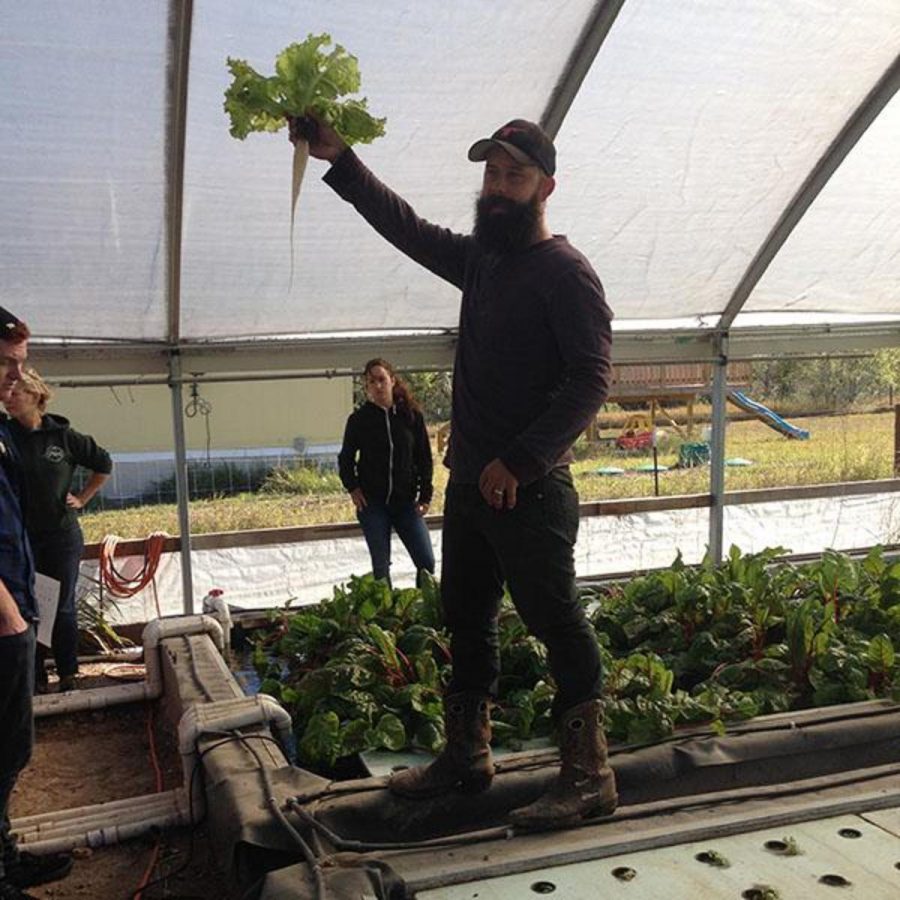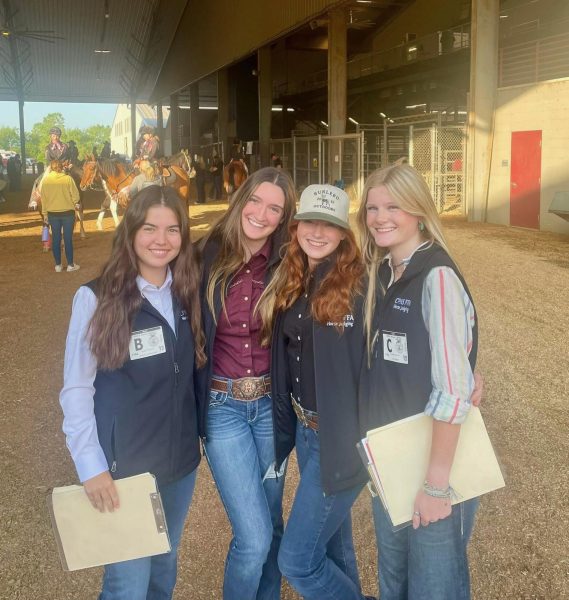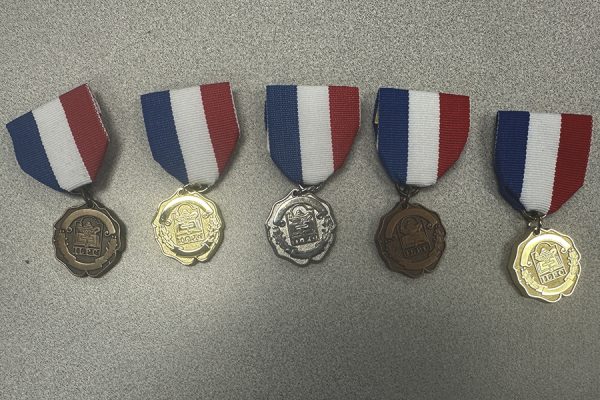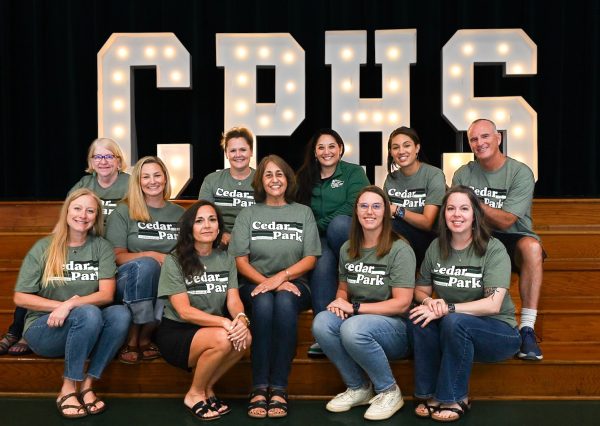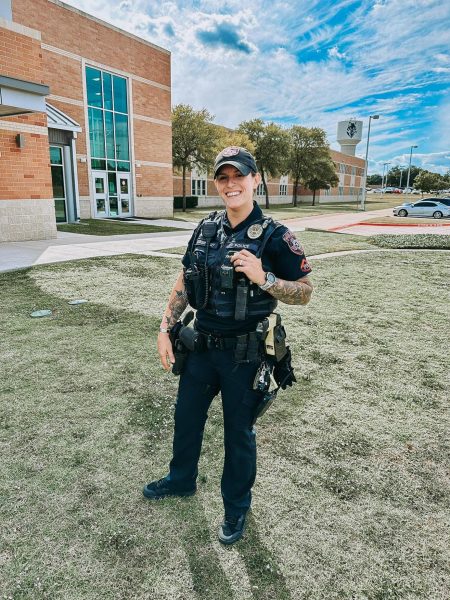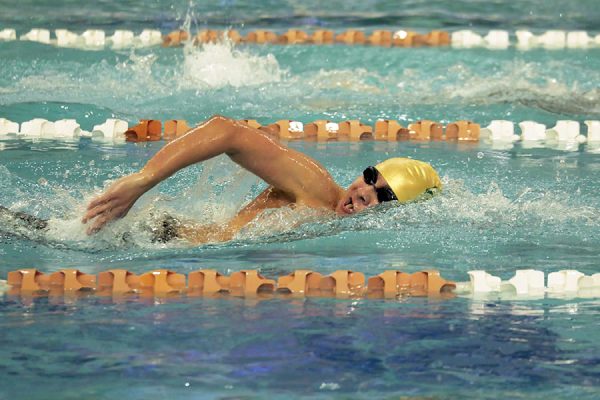APES students dig in deep
Local farmer shows APES students the magic of hydroponics. “The farm was self sustaining,” senior Jordan Teliha said. “It is really an interesting concept and it was united with these really progressive farming techniques. It seemed like it would be a fun place to work.”
January 8, 2016
From growing lettuce to upcycling, there’s not much Doc. Mcpherson’s APES class doesn’t do. A recent addition to their environmental curriculum included a trip to a small hydroponics farm and homestead, located just an hour away.
Hydroponics farms use fish to help grow and fertilize plants, allowing for a beneficial relationship, and a more organic option for food growth.
“There aren’t many hydroponic farms around in general, and it was cool to see one in our regional community,” senior Jordan Teliha said. “It’s a really revolutionary process.”
Teliha, like many of the students living in Cedar Park hadn’t been exposed to the idea of a homestead, a self providing household, or the revolutionary process of hydroponics.
“I think aquaponics and homesteads are really cool,” Teliha said. “There is something appealing about being in the countryside and being self sustaining. Hydroponics and aquaponics are pretty revolutionary technologies that have great potential to grow crops with less water and environmental externalities. By the end, I kind of wanted a little farm myself.”
With a trip like this one, Dr. Mcpherson’s students were able to get some real life knowledge, and get their hands a little dirty. This allowed for them to get a deeper understanding of the information they’re reading in their text books.
“I enjoy seeing what I learn in the real world,” senior Kristen Kelly said. “I thought going on the field trip would be a good opportunity to do that.”
Along with getting to understand how the technology worked, the students also got to interact with the homestead, and the people and creature that live there. A homestead functions as a self-providing home, food is grown and slaughtered, and energy is harvested.
“It made me want to eat more locally,” Kelly said. “I realized the amount of support that local farms need to survive and I started to understand how bad the chemicals are and that many farms put in there food.”
Through the students trip they were able to get a closer look at what they were learning, and gain a deeper appreciation for the food being put on their plate.
“My biggest takeaway from this trip was learning about all the insane advantages of hydroponics,” senior Reagan Brittan said. “You save a ton of water, and the food stays a lot fresher.”

![Posing with their UIL State Trophy, the Robolobos Van Halen Team beams with excitement after their win. “It was a team effort,” junior Noah Vo said. “I was happy because something happened in the first match and the match was also really close. So [when] they finally revealed it, I was pretty happy.” Photo courtesy of Amy Lovelace](https://cphswolfpack.com/wp-content/uploads/2025/05/IMG_0910-EDIT-1200x723.jpg)
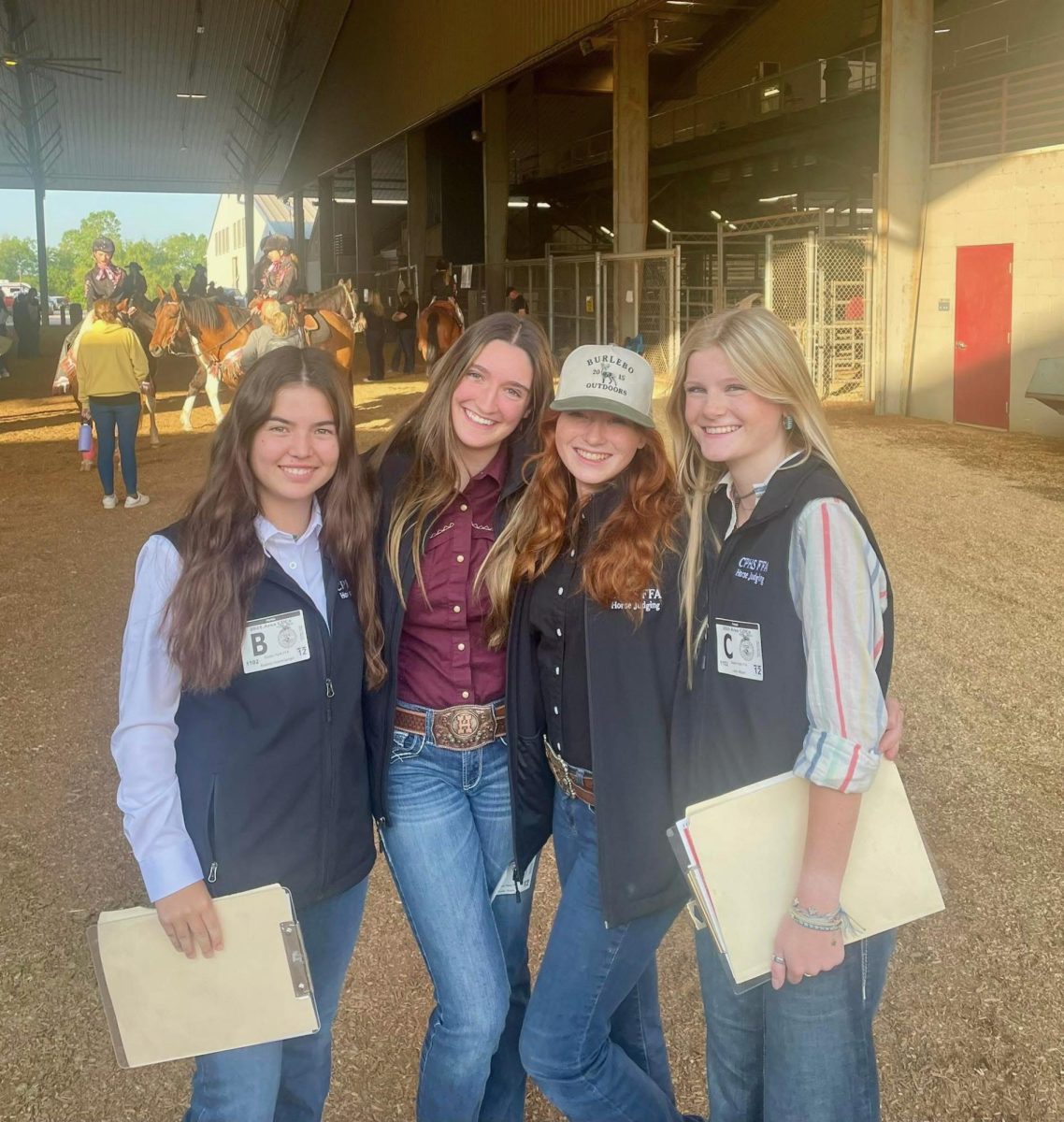
![Broadcast, yearbook and newspaper combined for 66 Interscholastic League Press Conference awards this year. Yearbook won 43, newspaper won 14 and broadcast took home nine. “I think [the ILPC awards] are a great way to give the kids some acknowledgement for all of their hard work,” newspaper and yearbook adviser Paige Hert said. “They typically spend the year covering everyone else’s big moments, so it’s really cool for them to be celebrated so many times and in so many different ways.”](https://cphswolfpack.com/wp-content/uploads/2025/05/edited-ILPC.jpg)













![Bringing her arm over her head and taking a quick breath, junior Lauren Lucas swims the final laps of the 500 freestyle at the regionals swimming competition on date. Lucas broke the school’s 18-year-old record for the 500 freestyle at regionals and again at state with a time of 4:58.63. “I’d had my eye on that 500 record since my freshman year, so I was really excited to see if I could get it at regionals or districts,” Lucas said. “ State is always a really fun experience and medaling for the first time was really great. It was a very very tight race, [so] I was a bit surprised [that I medaled]. [There were] a lot of fast girls at the meet in general, [and] it was like a dogfight back and forth, back and forth.” Photo by Kaydence Wilkinson](https://cphswolfpack.com/wp-content/uploads/2025/03/Kaydence-2.7-23-edit-2.jpg)
![As the support team sits and poses for a photo in the cafeteria with the counseling team they eagerly wait to start their day. "We [all] seem to be a team, I get up every day and there's days where I don't want to go to work today, but I'm thankful that I have a job and I'm blessed to have what I have," Christopherson said. Photo Courtesy of Julie Weltens.](https://cphswolfpack.com/wp-content/uploads/2025/01/AF9E8470-10D7-4C91-BF28-EC8F86BAB66C-1200x852.jpeg)
![Officer Stephanie Cash is in her second year as an SRO at CPHS. “Seeing [students] grow over the years has been kind of cool,” Officer Cash said. “Freshmen that [are] all over the place and then in the next couple of years get a little more squared away and go to class and do work and start thinking about the future. Being a part of a student's growth is the best way to measure my success as an SRO.” Photo Courtesy of Cedar Park Police Department's PIO, Alicia Gallagher.](https://cphswolfpack.com/wp-content/uploads/2024/12/CPHS-SRO-900x1200.jpg)



![Taking a breath as he raises his arm up and out of the water, sophomore Kaden Padilla swims the 500 freestyle at the UIL state meet on Feb. 21-22. Padilla placed 10th overall and second in the consolation final in the event, dropping two seconds. “My family was there, so being able to drop time for them was really special,” Padilla said. “It was awesome [finding out I advanced to the consolation finals]. I wasn’t expecting it, and I was very surprised. My parents being there definitely made me a lot happier knowing they got to see me swim in finals.” Photo by Skyler King.](https://cphswolfpack.com/wp-content/uploads/2025/03/kaden-padilla.jpg)

![Three defenders try to stop senior point guard Hope Edwards before the ball leaves her hands. The girls basketball team faced Liberty Hill on Feb 21, losing 58-40. “[My season was] definitely bittersweet,” Edwards said. It's definitely sad [because] I'm gonna miss all my teammates, my coaches and just the whole CP environment.”](https://cphswolfpack.com/wp-content/uploads/2025/03/julia-128-1200x800.jpg)













